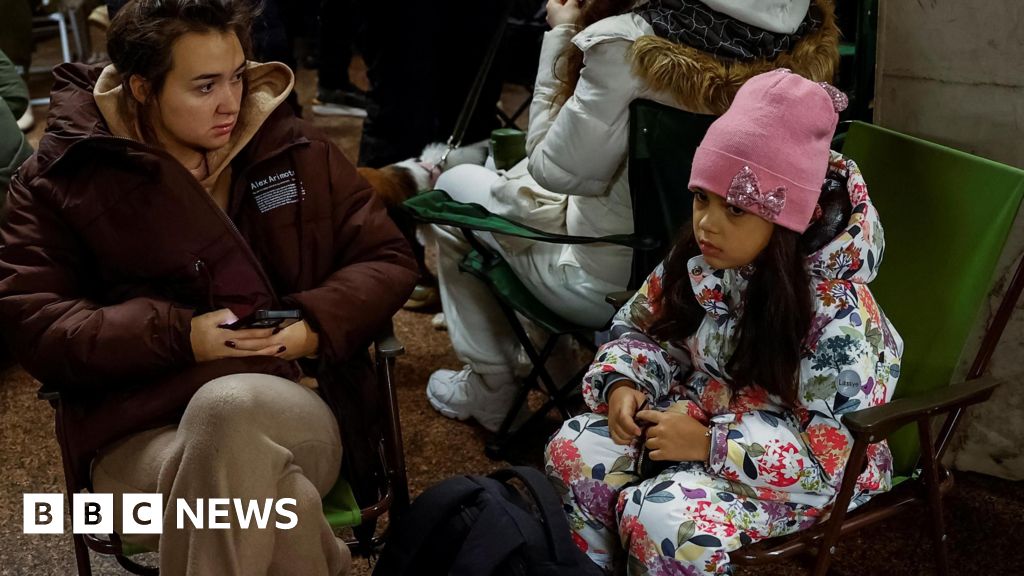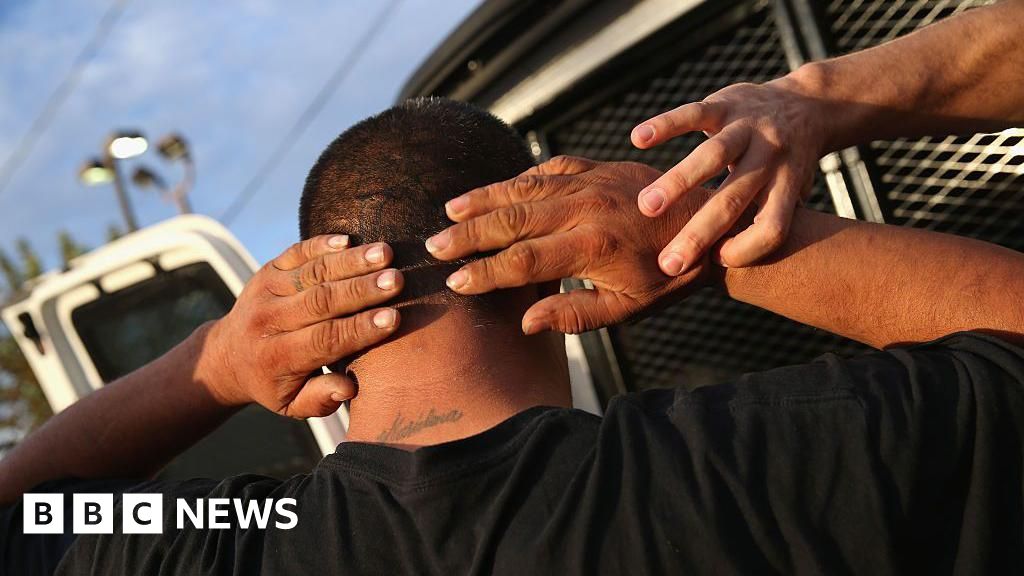ARTICLE AD BOX
By Sarah Rainsford
Eastern Europe correspondent, Dnipro
Watch: The Ukrainian women hand-making Molotov cocktails
On the day Vladimir Putin ordered his soldiers into Ukraine, Arina had planned a dance class after work and then a party. Three days later, the English teacher was making Molotov cocktails in a park.
I found her crouching on the grass with dozens of other women, grating polystyrene chunks as if they were cheese and ripping sheets into rags for homemade bottle-bombs.
Such scenes are unimaginable to most in Europe. They were unthinkable here too, once.
But Dnipro is now preparing to defend itself against advancing Russian troops.
"No-one thought this is how we'd spend our weekend, but it seems like the only important thing to do now," Arina told me, the young teacher's face and hair sprinkled in white dust from the polystyrene.
"It's pretty terrifying. I think we don't really realise what it is we're doing; we just need to be doing something," she said.
A few metres away, Elena and Yulia told me they'd left their children with grandparents in order to come and help make these weapons.
"Sitting home doing nothing would be even scarier," Elena said, not pausing her grating even for a second.
She laughs that she's a good cook and this process is not so different.
"I can't believe this is happening to us, but what choice do we have? No-one consulted us on anything," Elena said.
English teacher Arina is now spending her weekend making Molotov cocktails in a park
It feels like this whole city has been jolted into action.
The steps of a nearby hall are heaped with donated clothes, blankets and buckwheat. A stream of people keep arriving with more - including petrol, water and toiletries - as volunteers yell instructions on where to take it all.
The supplies are for Ukrainian fighters, as well as anyone forced to flee to Dnipro from fighting elsewhere.
But it's also a stockpile for if the strategic city comes under siege itself.
The giant effort was launched by five women and a handful of social media posts.
Now, dozens of people are coordinating a major aid effort that looks chaotic but is anything of the sort.
There's a whole separate area for those who want to get a weapon and sign up to fight; that queue stretches far off into the distance.
"The official organisations couldn't cope, so we created this centre," Katerina Leonova told me, her phone unglued from her ear for a brief moment.
"Does [Putin] really believe he can take over Ukraine, and make Russia out of Ukraine? We are not scared here. We are angry," she said.
Donations for the city's war effort - including petrol, water and toiletries - and the volunteers who are coordinating it all
Dnipro has already felt the cost of this war.
All 400 beds at the military hospital are full and staff are now receiving hundreds of casualties every day. They've set up camp beds in the corridors to cope with the influx.
"We're at a peak, I think. There's fighting on all sides of us," hospital spokesman Sergei Bachinsky told me, his voice quietly urgent.
"Before, we used to know exactly where the clashes were taking place and could prepare to receive the injured even before they were evacuated to us. Now, the flow is constant."
The military can't use helicopters - Russian forces will shoot them down. By road, it takes much longer to reach urgent care.
But Sergei insisted that morale was high, even among the injured.
"Even men with burns or concussion want to go back to their units to carry on the fight," he said.
As we spoke, two buses pulled out of the hospital gates full of soldiers. The walking wounded were being transferred to facilities elsewhere in Ukraine, freeing up beds closer to the front lines.
There's no shortage of supplies for them. People bring bags of medicines, syringes and bandages to the hospital, non-stop. I saw one man handing over an old set of crutches. Nothing was refused.
Dnipro is coping. A whole city is rallying round. But the pressure on everyone is increasing.

 2 years ago
18
2 years ago
18








 English (US)
English (US)